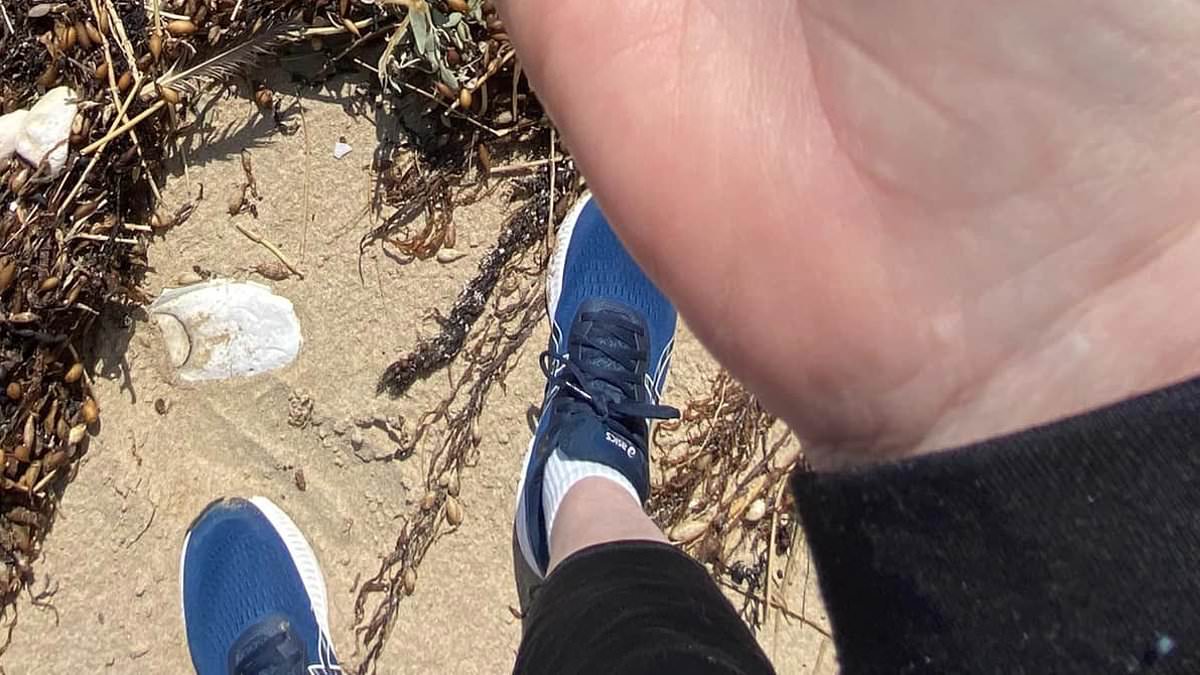A beach-goer has put Aussies on high alert after she unknowingly picked up a venomous sea creature and held it in her bare hands.
The woman was walking at Massacre Bay along Victoria’s Great Ocean Road when she spotted ‘plastic rubbish’ along the shoreline.
Without realising the imminent danger, she picked up several bluebottles and laid them across her hand to snap photo for social media.
She posted the photo to Facebook and asked if anyone knew what the bloated blue objects found among kelp and seaweed were.
Aussies were quick to identify the venomous sea creatures.
‘Don’t touch them!’ one shocked user wrote.
‘Crikey… wouldn’t be picking those buggers up!’ another said.
A third advised: ‘Just a tip, if you don’t know what something is, don’t pick it up’.
A bluebottle sting can cause pain, whip-like lines and sores on the areas of skin that come into contact with the tentacles.
Along ‘s east coast, between 10,000 to 30,000 bluebottle stings are reported every year.
They are the most common cause of marine stings in , with one in six reporting to have been stung.
Bluebottle stings can be very painful, though are rarely life-threatening.
People who ae allergic to their venom may experience severe reactions.
A commonly believed remedy for the sting includes urinating on a bluebottle sting or applying vinegar.
This can actually make the pain worse.
To treat a bluebottle sting, people are urged to first rinse the affected area with seawater to remove any remaining tentacles.
Do not rub the sting area or use vinegar, as this can make the pain worse.
Then, immerse the sting site in hot water – as hot as can be comfortably tolerated – for 20-30 minutes or until the pain subsides.
If hot water is unavailable, apply a cold pack or ice to reduce swelling.
If symptoms persist or get worse, seek medical attention.
The long tentacles of the bluebottle can extend up to three metres in length.
The presence of bluebottles on beaches is heavily influenced by wind direction; southerly and northeast winds tend to bring the creatures ashore.
A bluebottle is often mistakenly referred to as a jellyfish, though they are related.
Also known as the Pacific man-of-war or Portuguese man-o-war, the bluebottle isn’t a single animal, but a colony of four kinds of highly modified individuals, all dependent on each another for survival.
